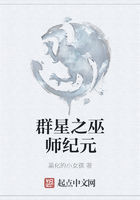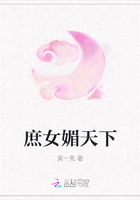AT last, an answer came from the two old ladies. They presented their compliments to Mr. Copperfield, and informed him that they had given his letter their best consideration,‘with a view to the happiness of both parties’—which I thought rather an alarming expression, not only because of the use they had made of it in relation to the family difference before-mentioned, but because I had (and have all my life) observed that conventional phrases are a sort of fireworks, easily let off, and liable to take a great variety of shapes and colours not at all suggested by their original form. The Misses Spenlow added that they begged to forbear expressing,‘through the medium of correspondence’, an opinion on the subject of Mr. Copperfield's communication; but that if Mr. Copperfield would do them the favour to call, upon a certain day (accompanied, if he thought proper, by a confidential friend), they would be happy to hold some conversation on the subject.
To this favour, Mr. Copperfield immediately replied, with his respectful compliments, that he would have the honour of waiting on the Misses Spenlow, at the time appointed; accompanied, in accordance with their kind permission, by his friend Mr. Thomas Traddles of the Inner Temple. Having dispatched which missive, Mr. Copperfield fell into a condition of strong nervous agitation; and so remained until the day arrived.
It was a great augmentation of my uneasiness to be bereaved, at this eventful crisis, of the inestimable services of Miss Mills. But Mr. Mills, who was always doing something or other to annoy me—or I felt as if he were, which was the same thing—had brought his conduct to a climax, by taking it into his head that he would go to India. Why should he go to India, except to harass me? To be sure he had nothing to do with any other part of the world, and had a good deal to do with that part; being entirely in the India trade, whatever that was (I had floating dreams myself concerning golden shawls and elephants' teeth); having been at Calcutta in his youth; and designing now to go out there again, in the capacity of resident partner. But this was nothing to me. However, it was so much to him that for India he was bound, and Julia with him; and Julia went into the country to take leave of her relations; and the house was put into a perfect suit of bills, announcing that it was to be let or sold, and that the furniture (Mangle and all) was to be taken at a valuation. So, here was another earthquake of which I became the sport, before I had recovered from the shock of its predecessor!
I was in several minds how to dress myself on the important day; being divided between my desire to appear to advantage, and my apprehensions of putting on anything that might impair my severely practical character in the eyes of the Misses Spenlow. I endeavoured to hit a happy medium between these two extremes; my aunt approved the result; and Mr. **** threw one of his shoes after Traddles and me, for luck, as we went downstairs.
Excellent fellow as I knew Traddles to be, and warmly attached to him as I was, I could not help wishing, on that delicate occasion, that he had never contracted the habit of brushing his hair so very upright. It gave him a surprised look—not to say a hearth-broomy kind of expression—which, my apprehensions whispered, might be fatal to us.
I took the liberty of mentioning it to Traddles, as we were walking to Putney; and saying that if he WOULD smooth it down a little—
‘My dear Copperfield,’said Traddles, lifting off his hat, and rubbing his hair all kinds of ways,‘nothing would give me greater pleasure. But it won't.’
‘Won't be smoothed down?’said I.
‘No,’said Traddles.‘Nothing will induce it. If I was to carry a half-hundred-weight upon it, all the way to Putney, it would be up again the moment the weight was taken off. You have no idea what obstinate hair mine is, Copperfield. I am quite a fretful porcupine.’
I was a little disappointed, I must confess, but thoroughly charmed by his good-nature too. I told him how I esteemed his good-nature; and said that his hair must have taken all the obstinacy out of his character, for he had none.
‘Oh!’returned Traddles, laughing.‘I assure you, it's quite an old story, my unfortunate hair. My uncle's wife couldn't bear it. She said it exasperated her. It stood very much in my way, too, when I first fell in love with Sophy. Very much!’
‘Did she object to it?’
‘SHE didn't,’rejoined Traddles;‘but her eldest sister—the one that's the Beauty—quite made game of it, I understand. In fact, all the sisters laugh at it.’
‘Agreeable!’said I.
‘Yes,’returned Traddles with perfect innocence,‘it's a joke for us. They pretend that Sophy has a lock of it in her desk, and is obliged to shut it in a clasped book, to keep it down. We laugh about it.’
‘By the by, my dear Traddles,’said I,‘your experience may suggest something to me. When you became engaged to the young lady whom you have just mentioned, did you make a regular proposal to her family? Was there anything like—what we are going through today, for instance?’I added, nervously.
‘Why,’replied Traddles, on whose attentive face a thoughtful shade had stolen,‘it was rather a painful transaction, Copperfield, in my case. You see, Sophy being of so much use in the family, none of them could endure the thought of her ever being married. Indeed, they had quite settled among themselves that she never was to be married, and they called her the old maid. Accordingly, when I mentioned it, with the greatest precaution, to Mrs. Crewler—’
‘The mama?’said I.
‘The mama,’said Traddles—’Reverend Horace Crewler—when I mentioned it with every possible precaution to Mrs. Crewler, the effect upon her was such that she gave a scream and became insensible. I couldn't approach the subject again, for months.’
‘You did at last?’said I.
‘Well, the Reverend Horace did,’said Traddles.‘He is an excellent man, most exemplary in every way; and he pointed out to her that she ought, as a Christian, to reconcile herself to the sacrifice (especially as it was so uncertain), and to bear no uncharitable feeling towards me. As to myself, Copperfield, I give you my word, I felt a perfect bird of prey towards the family.’
‘The sisters took your part, I hope, Traddles?’
‘Why, I can't say they did,’he returned.‘When we had comparatively reconciled Mrs. Crewler to it, we had to break it to Sarah. You recollect my mentioning Sarah, as the one that has something the matter with her spine?’
‘Perfectly!’
‘She clenched both her hands,’said Traddles, looking at me in dismay;‘shut her eyes; turned lead-colour; became perfectly stiff; and took nothing for two days but toast-and-water, administered with a tea-spoon.’
‘What a very unpleasant girl, Traddles!’I remarked.
‘Oh, I beg your pardon, Copperfield!’said Traddles.‘She is a very charming girl, but she has a great deal of feeling. In fact, they all have. Sophy told me afterwards, that the self-reproach she underwent while she was in attendance upon Sarah, no words could describe. I know it must have been severe, by my own feelings, Copperfield; which were like a criminal's. After Sarah was restored, we still had to break it to the other eight; and it produced various effects upon them of a most pathetic nature. The two little ones, whom Sophy educates, have only just left off de-testing me.’
‘At any rate, they are all reconciled to it now, I hope?’said I.
‘Ye-yes, I should say they were, on the whole, resigned to it,’said Traddles, doubtfully.‘The fact is, we avoid mentioning the subject; and my unsettled prospects and indifferent circumstances are a great consolation to them. There will be a deplorable scene, whenever we are married. It will be much more like a funeral, than a wedding. And they'll all hate me for taking her away!’
His honest face, as he looked at me with a serio-comic shake of his head, impresses me more in the remembrance than it did in the reality, for I was by this time in a state of such excessive trepidation and wandering of mind, as to be quite unable to fix my attention on anything. On our approaching the house where the Misses Spenlow lived, I was at such a discount in respect of my personal looks and presence of mind, that Traddles proposed a gentle stimulant in the form of a glass of ale. This having been administered at a neighbouring public-house, he conducted me, with tottering steps, to the Misses Spenlow's door.
I had a vague sensation of being, as it were, on view, when the maid opened it; and of wavering, somehow, across a hall with a weather-glass in it, into a quiet little drawing-room on the ground-floor, commanding a neat garden. Also of sitting down here, on a sofa, and seeing Traddles's hair start up, now his hat was removed, like one of those obtrusive little figures made of springs, that fly out of fictitious snuff-boxes when the lid is taken off. Also of hearing an old-fashioned clock ticking away on the chimney-piece, and trying to make it keep time to the jerking of my heart,—which it wouldn't. Also of looking round the room for any sign of Dora, and seeing none. Also of thinking that Jip once barked in the distance, and was instantly choked by somebody. Ultimately I found myself backing Traddles into the fireplace, and bowing in great confusion to two dry little elderly ladies, dressed in black, and each looking wonderfully like a preparation in chip or tan of the late Mr. Spenlow.
‘Pray,’said one of the two little ladies,‘be seated.’
When I had done tumbling over Traddles, and had sat upon something which was not a cat—my first seat was—I so far recovered my sight, as to perceive that Mr. Spenlow had evidently been the youngest of the family; that there was a disparity of six or eight years between the two sisters; and that the younger appeared to be the manager of the conference, inasmuch as she had my letter in her hand—so familiar as it looked to me, and yet so odd!—and was referring to it through an eye-glass. They were dressed alike, but this sister wore her dress with a more youthful air than the other; and perhaps had a trifle more frill, or tucker, or brooch, or bracelet, or some little thing of that kind, which made her look more lively. They were both upright in their carriage, formal, precise, composed, and quiet. The sister who had not my letter, had her arms crossed on her breast, and resting on each other, like an Idol.
‘Mr. Copperfield, I believe,’said the sister who had got my letter, addressing herself to Traddles.
This was a frightful beginning. Traddles had to indicate that I was Mr. Copperfield, and I had to lay claim to myself, and they had to divest themselves of a preconceived opinion that Traddles was Mr. Copperfield, and altogether we were in a nice condition. To improve it, we all distinctly heard Jip give two short barks, and receive another choke.
‘Mr. Copperfield!’said the sister with the letter.
I did something—bowed, I suppose—and was all attention, when the other sister struck in.
‘My sister Lavinia,’said she‘being conversant with matters of this nature, will state what we consider most calculated to promote the happiness of both parties.’
I discovered afterwards that Miss Lavinia was an authority in affairs of the heart, by reason of there having anciently existed a certain Mr. Pidger, who played short whist, and was supposed to have been enamoured of her. My private opinion is, that this was entirely a gratuitous assumption, and that Pidger was altogether innocent of any such sentiments—to which he had never given any sort of expression that I could ever hear of. Both Miss Lavinia and Miss Clarissa had a superstition, however, that he would have declared his passion, if he had not been cut short in his youth (at about sixty) by over-drinking his constitution, and over-doing an attempt to set it right again by swilling Bath water. They had a lurking suspicion even, that he died of secret love; though I must say there was a picture of him in the house with a damask nose, which concealment did not appear to have ever preyed upon.
‘We will not,’said Miss Lavinia,‘enter on the past history of this matter. Our poor brother Francis's death has cancelled that.’
‘We had not,’said Miss Clarissa,‘been in the habit of frequent association with our brother Francis; but there was no decided division or disunion between us. Francis took his road; we took ours. We considered it conducive to the happiness of all parties that it should be so. And it was so.’
Each of the sisters leaned a little forward to speak, shook her head after speaking, and became upright again when silent. Miss Clarissa never moved her arms. She sometimes played tunes upon them with her fingers—minuets and marches I should think—but never moved them.
‘Our niece's position, or supposed position, is much changed by our brother Francis's death,’said Miss Lavinia;‘and therefore we consider our brother's opinions as regarded her position as being changed too. We have no reason to doubt, Mr. Copperfield, that you are a young gentleman possessed of good qualities and honourable character; or that you have an affection—or are fully persuaded that you have an affection—for our niece.’
I replied, as I usually did whenever I had a chance, that nobody had ever loved anybody else as I loved Dora. Traddles came to my assistance with a confirmatory murmur.
Miss Lavinia was going on to make some rejoinder, when Miss Clarissa, who appeared to be incessantly beset by a desire to refer to her brother Francis, struck in again:
‘If Dora's mama,’she said,‘when she married our brother Francis, had at once said that there was not room for the family at the dinner-table, it would have been better for the happiness of all parties.’
‘Sister Clarissa,’said Miss Lavinia.‘Perhaps we needn't mind that now.’
‘Sister Lavinia,’said Miss Clarissa,‘it belongs to the subject. With your branch of the subject, on which alone you are competent to speak, I should not think of interfering. On this branch of the subject I have a voice and an opinion. It would have been better for the happiness of all parties, if Dora's mama, when she married our brother Francis, had mentioned plainly what her intentions were. We should then have known what we had to expect. We should have said“Pray do not invite us, at any time”; and all possibility of misunderstanding would have been avoided.’
When Miss Clarissa had shaken her head, Miss Lavinia resumed: again referring to my letter through her eye-glass. They both had little bright round twinkling eyes, by the way, which were like birds' eyes. They were not unlike birds, altogether; having a sharp, brisk, sudden manner, and a little short, spruce way of adjusting themselves, like canaries.
Miss Lavinia, as I have said, resumed:
‘You ask permission of my sister Clarissa and myself, Mr. Copperfield, to visit here, as the accepted suitor of our niece.’
‘If our brother Francis,’said Miss Clarissa, breaking out again, if I may call anything so calm a breaking out,‘wished to surround himself with an atmosphere of Doctors' Commons, and of Doctors' Commons only, what right or desire had we to object? None, I am sure. We have ever been far from wishing to obtrude ourselves on anyone. But why not say so? Let our brother Francis and his wife have their society. Let my sister Lavinia and myself have our society. We can find it for ourselves, I hope.’
As this appeared to be addressed to Traddles and me, both Traddles and I made some sort of reply. Traddles was inaudible. I think I observed, myself, that it was highly creditable to all concerned. I don't in the least know what I meant.
‘Sister Lavinia,’said Miss Clarissa, having now relieved her mind,‘you can go on, my dear.’
Miss Lavinia proceeded:
‘Mr. Copperfield, my sister Clarissa and I have been very careful indeed in considering this letter; and we have not considered it without finally showing it to our niece, and discussing it with our niece. We have no doubt that you think you like her very much.’
‘Think, ma'am,’I rapturously began,‘oh!—’
But Miss Clarissa giving me a look (just like a sharp canary), as requesting that I would not interrupt the oracle, I begged pardon.
‘Affection,’said Miss Lavinia, glancing at her sister for corroboration, which she gave in the form of a little nod to every clause,‘mature affection, homage, devotion, does not easily express itself. Its voice is low. It is modest and retiring, it lies in ambush, waits and waits. Such is the mature fruit. Sometimes a life glides away, and finds it still ripening in the shade.’
Of course I did not understand then that this was an allusion to her supposed experience of the stricken Pidger; but I saw, from the gravity with which Miss Clarissa nodded her head, that great weight was attached to these words.
‘The light—for I call them, in comparison with such sentiments, the light—inclinations of very young people,’pursued Miss Lavinia,‘are dust, compared to rocks. It is owing to the difficulty of knowing whether they are likely to endure or have any real foundation, that my sister Clarissa and myself have been very undecided how to act, Mr. Copperfield, and Mr.—’
‘Traddles,’said my friend, finding himself looked at.
‘I beg pardon. Of the Inner Temple, I believe?’said Miss Clarissa, again glancing at my letter.
Traddles said‘Exactly so,’and became pretty red in the face.
Now, although I had not received any express encouragement as yet, I fancied that I saw in the two little sisters, and particularly in Miss Lavinia, an intensified enjoyment of this new and fruitful subject of domestic interest, a settling down to make the most of it, a disposition to pet it, in which there was a good bright ray of hope. I thought I perceived that Miss Lavinia would have uncommon satisfaction in superintending two young lovers, like Dora and me; and that Miss Clarissa would have hardly less satisfaction in seeing her superintend us, and in chiming in with her own particular department of the subject whenever that impulse was strong upon her. This gave me courage to protest most vehemently that I loved Dora better than I could tell, or anyone believe; that all my friends knew how I loved her; that my aunt, Agnes, Traddles, everyone who knew me, knew how I loved her, and how earnest my love had made me. For the truth of this, I appealed to Traddles. And Traddles, firing up as if he were plunging into a Parliamentary Debate, really did come out nobly: confirming me in good round terms, and in a plain sensible practical manner, that evidently made a favourable impression.
‘I speak, if I may presume to say so, as one who has some little experience of such things,’said Traddles,‘being myself engaged to a young lady—one of ten, down in Devonshire—and seeing no probability, at present, of our engagement coming to a termination.’
‘You may be able to confirm what I have said, Mr. Traddles,’observed Miss Lavinia, evidently taking a new interest in him,‘of the affection that is modest and retiring; that waits and waits?’
‘Entirely, ma'am,’said Traddles.
Miss Clarissa looked at Miss Lavinia, and shook her head gravely. Miss Lavinia looked consciously at Miss Clarissa, and heaved a little sigh.‘Sister Lavinia,’said Miss Clarissa,‘take my smelling-bottle.’
Miss Lavinia revived herself with a few whiffs of aromatic vinegar—Traddles and I looking on with great solicitude the while; and then went on to say, rather faintly:
‘My sister and myself have been in great doubt, Mr. Traddles, what course we ought to take in reference to the likings, or imaginary likings, of such very young people as your friend Mr. Copperfield and our niece.’
‘Our brother Francis's child,’remarked Miss Clarissa.‘If our brother Francis's wife had found it convenient in her lifetime (though she had an unquestionable right to act as she thought best) to invite the family to her dinner-table, we might have known our brother Francis's child better at the present moment. Sister Lavinia, proceed.’
Miss Lavinia turned my letter, so as to bring the superscription towards herself, and referred through her eye-glass to some orderly-looking notes she had made on that part of it.
‘It seems to us,’said she,‘prudent, Mr. Traddles, to bring these feelings to the test of our own observation. At present we know nothing of them, and are not in a situation to judge how much reality there may be in them. Therefore we are inclined so far to accede to Mr. Copperfield's proposal, as to admit his visits here.’
‘I shall never, dear ladies,’I exclaimed, relieved of an immense load of apprehension,‘forget your kindness!’
‘But,’pursued Miss Lavinia,—‘but, we would prefer to regard those visits, Mr. Traddles, as made, at present, to us. We must guard ourselves from recognizing any positive engagement between Mr. Copperfield and our niece, until we have had an opportunity—’
‘Until YOU have had an opportunity, sister Lavinia,’said Miss Clarissa.
‘Be it so,’assented Miss Lavinia, with a sigh—‘until I have had an opportunity of observing them.’
‘Copperfield,’said Traddles, turning to me,‘you feel, I am sure, that nothing could be more reasonable or considerate.’
‘Nothing!’cried I.‘I am deeply sensible of it.’
‘In this position of affairs,’said Miss Lavinia, again referring to her notes,‘and admitting his visits on this understanding only, we must require from Mr. Copperfield a distinct assurance, on his word of honour, that no communication of any kind shall take place between him and our niece without our knowledge. That no project whatever shall be entertained with regard to our niece, without being first submitted to us—’
‘To you, sister Lavinia,’Miss Clarissa interposed.
‘Be it so, Clarissa!’assented Miss Lavinia resignedly—‘to me—and receiving our concurrence. We must make this a most express and serious stipulation, not to be broken on any account. We wished Mr. Copperfield to be accompanied by some confidential friend today,’with an inclination of her head towards Traddles, who bowed,‘in order that there might be no doubt or misconception on this subject. If Mr. Copperfield, or if you, Mr. Traddles, feel the least scruple, in giving this promise, I beg you to take time to consider it.’
I exclaimed, in a state of high ecstatic fervour, that not a moment's consideration could be necessary. I bound myself by the required promise, in a most impassioned manner; called upon Traddles to witness it; and denounced myself as the most atrocious of characters if I ever swerved from it in the least degree.
‘Stay!’said Miss Lavinia, holding up her hand;‘we resolved, before we had the pleasure of receiving you two gentlemen, to leave you alone for a quarter of an hour, to consider this point. You will allow us to retire.’
It was in vain for me to say that no consideration was necessary. They persisted in withdrawing for the specified time. Accordingly, these little birds hopped out with great dignity; leaving me to receive the congratulations of Traddles, and to feel as if I were translated to regions of exquisite happiness. Exactly at the expiration of the quarter of an hour, they reappeared with no less dignity than they had disappeared. They had gone rustling away as if their little dresses were made of autumn-leaves: and they came rustling back, in like manner.
I then bound myself once more to the prescribed conditions.
‘Sister Clarissa,’said Miss Lavinia,‘the rest is with you.’
Miss Clarissa, unfolding her arms for the first time, took the notes and glanced at them.
‘We shall be happy,’said Miss Clarissa,‘to see Mr. Copperfield to dinner, every Sunday, if it should suit his convenience. Our hour is three.’
I bowed.
‘In the course of the week,’said Miss Clarissa,‘we shall be happy to see Mr. Copperfield to tea. Our hour is half-past six.’
I bowed again.
‘Twice in the week,’said Miss Clarissa,‘but, as a rule, not oftener.’
I bowed again.
‘Miss Trotwood,’said Miss Clarissa,‘mentioned in Mr. Copperfield's letter, will perhaps call upon us. When visiting is better for the happiness of all parties, we are glad to receive visits, and return them. When it is better for the happiness of all parties that no visiting should take place, (as in the case of our brother Francis, and his establishment) that is quite different.’
I intimated that my aunt would be proud and delighted to make their acquaintance; though I must say I was not quite sure of their getting on very satisfactorily together. The conditions being now closed, I expressed my acknowledgements in the warmest manner; and, taking the hand, first of Miss Clarissa, and then of Miss Lavinia, pressed it, in each case, to my lips.
Miss Lavinia then arose, and begging Mr. Traddles to excuse us for a minute, requested me to follow her. I obeyed, all in a tremble, and was conducted into another room. There I found my blessed darling stopping her ears behind the door, with her dear little face against the wall; and Jip in the plate-warmer with his head tied up in a towel.
Oh! How beautiful she was in her black frock, and how she sobbed and cried at first, and wouldn't come out from behind the door! How fond we were of one another, when she did come out at last; and what a state of bliss I was in, when we took Jip out of the plate-warmer, and restored him to the light, sneezing very much, and were all three reunited!
‘My dearest Dora! Now, indeed, my own for ever!’
‘Oh, DON'T!’pleaded Dora.‘Please!’
‘Are you not my own for ever, Dora?’
‘Oh yes, of course I am!’cried Dora,‘but I am so frightened!’
‘Frightened, my own?’
‘Oh yes! I don't like him,’said Dora.‘Why don't he go?’
‘Who, my life?’
‘Your friend,’said Dora.‘It isn't any business of his. What a stupid he must be!’
‘My love!’(There never was anything so coaxing as her childish ways.)‘He is the best creature!’
‘Oh, but we don't want any best creatures!’pouted Dora.
‘My dear,’I argued,‘you will soon know him well, and like him of all things. And here is my aunt coming soon; and you'll like her of all things too, when you know her.’
‘No, please don't bring her!’said Dora, giving me a horrified little kiss, and folding her hands.‘Don't. I know she's a naughty, mischief-****** old thing! Don't let her come here, Doady!’which was a corruption of David.
Remonstrance was of no use, then; so I laughed, and admired, and was very much in love and very happy; and she showed me Jip's new trick of standing on his hind legs in a corner—which he did for about the space of a flash of lightning, and then fell down—and I don't know how long I should have stayed there, oblivious of Traddles, if Miss Lavinia had not come in to take me away. Miss Lavinia was very fond of Dora (she told me Dora was exactly like what she had been herself at her age—she must have altered a good deal), and she treated Dora just as if she had been a toy. I wanted to persuade Dora to come and see Traddles, but on my proposing it she ran off to her own room and locked herself in; so I went to Traddles without her, and walked away with him on air.
‘Nothing could be more satisfactory,’said Traddles;‘and they are very agreeable old ladies, I am sure. I shouldn't be at all surprised if you were to be married years before me, Copperfield.’
‘Does your Sophy play on any instrument, Traddles?’I inquired, in the pride of my heart.
‘She knows enough of the piano to teach it to her little sisters,’said Traddles.
‘Does she sing at all?’I asked.
‘Why, she sings ballads, sometimes, to freshen up the others a little when they're out of spirits,’said Traddles.‘Nothing scientific.’
‘She doesn't sing to the guitar?’said I.
‘Oh dear no!’said Traddles.
‘Paint at all?’
‘Not at all,’said Traddles.
I promised Traddles that he should hear Dora sing, and see some of her flower-painting. He said he should like it very much, and we went home arm in arm in great good humour and delight. I encouraged him to talk about Sophy, on the way; which he did with a loving reliance on her that I very much admired. I compared her in my mind with Dora, with considerable inward satisfaction; but I candidly admitted to myself that she seemed to be an excellent kind of girl for Traddles, too.
Of course my aunt was immediately made acquainted with the successful issue of the conference, and with all that had been said and done in the course of it. She was happy to see me so happy, and promised to call on Dora's aunts without loss of time. But she took such a long walk up and down our rooms that night, while I was writing to Agnes, that I began to think she meant to walk till morning.
My letter to Agnes was a fervent and grateful one, narrating all the good effects that had resulted from my following her advice. She wrote, by return of post, to me. Her letter was hopeful, earnest, and cheerful. She was always cheerful from that time.
I had my hands more full than ever, now. My daily journeys to Highgate considered, Putney was a long way off; and I naturally wanted to go there as often as I could. The proposed tea-drinkings being quite impracticable, I compounded with Miss Lavinia for permission to visit every Saturday afternoon, without detriment to my privileged Sundays. So, the close of every week was a delicious time for me; and I got through the rest of the week by looking forward to it.
I was wonderfully relieved to find that my aunt and Dora's aunts rubbed on, all things considered, much more smoothly than I could have expected. My aunt made her promised visit within a few days of the conference; and within a few more days, Dora's aunts called upon her, in due state and form. Similar but more friendly exchanges took place afterwards, usually at intervals of three or four weeks. I know that my aunt distressed Dora's aunts very much, by utterly setting at naught the dignity of fly-conveyance, and walking out to Putney at extraordinary times, as shortly after breakfast or just before tea; likewise by wearing her bonnet in any manner that happened to be comfortable to her head, without at all deferring to the prejudices of civilization on that subject. But Dora's aunts soon agreed to regard my aunt as an eccentric and somewhat masculine lady, with a strong understanding; and although my aunt occasionally ruffled the feathers of Dora's aunts, by expressing heretical opinions on various points of ceremony, she loved me too well not to sacrifice some of her little peculiarities to the general harmony.
The only member of our small society who positively refused to adapt himself to circumstances, was Jip. He never saw my aunt without immediately displaying every tooth in his head, retiring under a chair, and growling incessantly: with now and then a doleful howl, as if she really were too much for his feelings. All kinds of treatment were tried with him, coaxing, scolding, slapping, bringing him to Buckingham Street (where he instantly dashed at the two cats, to the terror of all beholders); but he never could prevail upon himself to bear my aunt's society. He would sometimes think he had got the better of his objection, and be amiable for a few minutes; and then would put up his snub nose, and howl to that extent, that there was nothing for it but to blind him and put him in the plate-warmer. At length, Dora regularly muffled him in a towel and shut him up there, whenever my aunt was reported at the door.
One thing troubled me much, after we had fallen into this quiet train. It was, that Dora seemed by one consent to be regarded like a pretty toy or plaything. My aunt, with whom she gradually became familiar, always called her Little Blossom; and the pleasure of Miss Lavinia's life was to wait upon her, curl her hair, make ornaments for her, and treat her like a pet child. What Miss Lavinia did, her sister did as a matter of course. It was very odd to me; but they all seemed to treat Dora, in her degree, much as Dora treated Jip in his.
I made up my mind to speak to Dora about this; and one day when we were out walking (for we were licensed by Miss Lavinia, after a while, to go out walking by ourselves), I said to her that I wished she could get them to behave towards her differently.
‘Because you know, my darling,’I remonstrated,‘you are not a child.’
‘There!’said Dora.‘Now you're going to be cross!’
‘Cross, my love?’
‘I am sure they're very kind to me,’said Dora,‘and I am very happy—’
‘Well! But my dearest life!’said I,‘you might be very happy, and yet be treated rationally.’
Dora gave me a reproachful look—the prettiest look!—and then began to sob, saying, if I didn't like her, why had I ever wanted so much to be engaged to her? And why didn't I go away, now, if I couldn't bear her?
What could I do, but kiss away her tears, and tell her how I doted on her, after that!
‘I am sure I am very affectionate,’said Dora;‘you oughtn't to be cruel to me, Doady!’
‘Cruel, my precious love! As if I would—or could—be cruel to you, for the world!’
‘Then don't find fault with me,’said Dora, ****** a rosebud of her mouth;‘and I'll be good.’
I was charmed by her presently asking me, of her own accord, to give her that cookery-book I had once spoken of, and to show her how to keep accounts as I had once promised I would. I brought the volume with me on my next visit (I got it prettily bound, first, to make it look less dry and more inviting); and as we strolled about the Common, I showed her an old housekeeping-book of my aunt's, and gave her a set of tablets, and a pretty little pencil-case and box of leads, to practise housekeeping with.
But the cookery-book made Dora's head ache, and the figures made her cry. They wouldn't add up, she said. So she rubbed them out, and drew little nosegays and likenesses of me and Jip, all over the tablets.
Then I playfully tried verbal instruction in domestic matters, as we walked about on a Saturday afternoon. Sometimes, for example, when we passed a butcher's shop, I would say:
‘Now suppose, my pet, that we were married, and you were going to buy a shoulder of mutton for dinner, would you know how to buy it?’
My pretty little Dora's face would fall, and she would make her mouth into a bud again, as if she would very much prefer to shut mine with a kiss.
‘Would you know how to buy it, my darling?’I would repeat, perhaps, if I were very inflexible.
Dora would think a little, and then reply, perhaps, with great triumph:
‘Why, the butcher would know how to sell it, and what need I know? Oh, you silly boy!’
So, when I once asked Dora, with an eye to the cookery-book, what she would do, if we were married, and I were to say I should like a nice Irish stew, she replied that she would tell the servant to make it; and then clapped her little hands together across my arm, and laughed in such a charming manner that she was more delightful than ever.
Consequently, the principal use to which the cookery-book was devoted, was being put down in the corner for Jip to stand upon. But Dora was so pleased, when she had trained him to stand upon it without offering to come off, and at the same time to hold the pencil-case in his mouth, that I was very glad I had bought it.
And we fell back on the guitar-case, and the flower-painting, and the songs about never leaving off dancing, Ta ra la! and were as happy as the week was long. I occasionally wished I could venture to hint to Miss Lavinia, that she treated the darling of my heart a little too much like a plaything; and I sometimes awoke, as it were, wondering to find that I had fallen into the general fault, and treated her like a plaything too—but not often.















